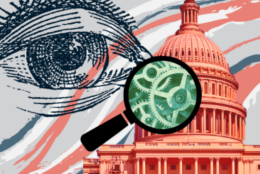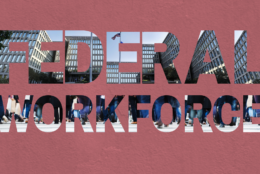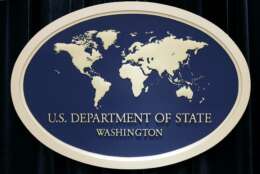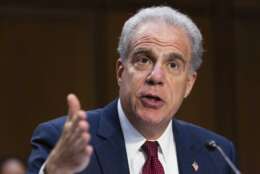Agency Oversight
-
As the tally of fraud and abuse in pandemic relief spending mounts, the Government Accountability Office (GAO) has a reminder: Program managers have a list of leading practices for preventing fraud. The question some have for those managers is why they did not use that list.
November 01, 2023 -
Chief learning officers, often behind the scenes, try to ensure an agency’s workforce has the skills it needs, particularly in mission-critical areas, such as data analytics, IT and cybersecurity.
October 31, 2023 -
In today's Federal Newscast: Federal employees’ demand for mental health services overseas is rising, but help for them is spread thin. HHS surpasses targets for hiring military spouses. And bid protests spiked in fiscal 2022.
October 27, 2023 -
In the endless quest for talent, federal contractors sometimes use foreign employees. A long-running program called E-verify lets employers confirm such potential employees are eligible to work in the United States. The Government Accountability Office (GAO) has found that agencies are not consistent in checking the E-verify system, as part of their contractor oversight.
October 25, 2023 -
The planned addition of facial recognition to Login.gov comes as GSA attempts to boost the program’s “identity proofing” capabilities.
October 18, 2023 -
In today's Federal Newscast: GSA is taking another step to measure how technology vendors are protecting their supply chains. The Navy moves to shutdown a facility at Pearl Harbor where fuel leaks contaminated water. And the IRS has spent $2 billion to rebuild its workforce and modernize its legacy IT systems.
October 16, 2023 -
When agency managers do not know what to do with someone, too often they put the employee on paid administrative leave. Despite a 2017 law designed to curb this practice, it still happens a lot, according to a group called, Public Employees for Environmental Responsibility (PEER).
October 11, 2023 -
The State Department tool cost about $400,000 to develop and is at least 97% as accurate as humans, according to an agency leader.
October 09, 2023 -
Every public institution needs an outside, independent look from time to time to make sure it's meeting its mission with integrity. But if you’re they biggest and most trusted government auditing organization in the country, who audits you? It turns out it is teams from other countries.
October 02, 2023 -
A recent audit by the Treasury Inspector General for Tax Administration (TIGTA), looked how the IRS deals with threats ad physical harm against IRS agents. Federal Drive Executive Producer Eric White spoke with Kent Sagara, who is the Acting Manager of TIGTA's Office of Inspections and Evaluations.
September 29, 2023 -
The 16th version of the Federal IT Acquisition Reform Act (FITARA) scorecard from Congressman Gerry Connolly (D-Va.) revealed two new pilot categories measuring the move to cloud and CIO authorities.
September 26, 2023 -
In today's Federal Newscast: Half the time, GAO says, America's 450 F-35 fighters are grounded because of maintenance issues. GSA again extends the due date for bids for OASIS+. And the VA is taking back nearly $10 million in bonuses.
September 25, 2023 -
The Postal Service’s regulator is looking to grow its tiny workforce to oversee some of the biggest changes in recent USPS history.
September 21, 2023 -
In today's Federal Newscast: OMB Director Shalanda Young warns that a continuing resolution could discontinue hiring. CQ Brown gets the green light to replace Mark Milley. And the GSA IG says the water in some federal buildings could give you Legionnaires’ disease.
September 21, 2023 -
Dozens of Drug Enforcement Administration agents are on the job without having taken a mandatory polygraph examination or, in some cases, they failed the test. This, according to a look-see by the Justice Department's Office of Inspector General. For more, and what's happened since this discovery, Federal Drive Host Tom Temin spoke with Inspector General Michael Horowitz.
September 20, 2023














